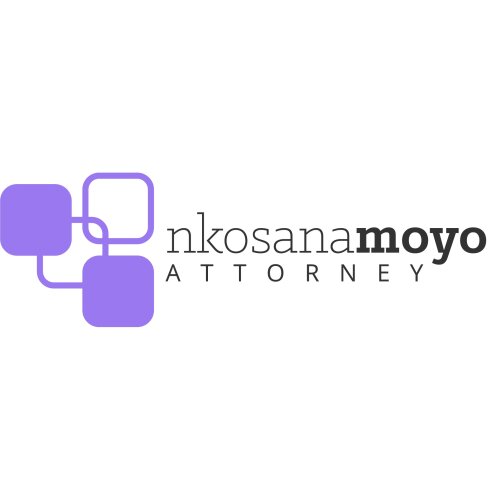Best Outsourcing Lawyers in South Africa
Share your needs with us, get contacted by law firms.
Free. Takes 2 min.
Or refine your search by selecting a city:
List of the best lawyers in South Africa
About Outsourcing Law in South Africa
Outsourcing is a strategic business practice where a company contracts out certain business functions or services to third-party providers. In South Africa, outsourcing can encompass a range of services, including IT, human resources, finance, and customer support. The practice is seen as a way to reduce costs, improve efficiency, and allow companies to focus on their core business operations. However, outsourcing involves complex legal considerations due to the transfer of control and the management of external partnerships, particularly in terms of data protection, labor laws, and service level agreements.
Why You May Need a Lawyer
There are several situations where seeking legal advice in the context of outsourcing may be necessary:
- Drafting and Reviewing Contracts: Ensuring that service agreements clearly define the scope of work, responsibilities, performance metrics, and penalties for non-compliance.
- Compliance with Local and International Laws: Understanding and adhering to data protection laws such as POPIA (Protection of Personal Information Act) in South Africa.
- Resolving Disputes: Managing conflicts or breaches of contract between outsourcing partners.
- Protecting Intellectual Property: Ensuring that confidential information and intellectual property are protected from unauthorized use or disclosure.
- Employment Law Compliance: Navigating complex labor laws when outsourcing involves employee transfers or collective bargaining issues.
Local Laws Overview
Key legal aspects affecting outsourcing in South Africa include:
- Protection of Personal Information Act (POPIA): Regulates the processing of personal information to ensure privacy and protection of data.
- Labour Relations Act: Governs employment relationships and affects how businesses manage outsourced labor.
- Consumer Protection Act: Affects services provided to consumers through outsourcing and ensures that they are fair and transparent.
- Intellectual Property Rights: Ensures protection of proprietary information and technology used in outsourced services.
- Contract Law: Essential for crafting binding outsourcing agreements that uphold Australian legal standards.
Frequently Asked Questions
1. What is outsourcing, and why is it used?
Outsourcing involves contracting out business processes or functions to third-party providers. It is used primarily to reduce costs, increase efficiency, and focus on core business activities.
2. What are common types of outsourced services in South Africa?
Commonly outsourced services include IT support, customer service, human resources, accounting, and legal services.
3. How does POPIA affect outsourcing arrangements?
POPIA requires that personal data be processed in a lawful, legitimate, and responsible manner, placing obligations on companies to ensure data protection within outsourcing arrangements.
4. What should be included in an outsourcing contract?
The contract should outline the scope of services, performance expectations, confidentiality clauses, pricing, and dispute resolution procedures.
5. How can I ensure compliance with South African labour laws in outsourcing?
Consult with a legal expert to ensure that outsourcing agreements comply with fair labor practices, collective bargaining agreements, and existing employment contracts.
6. What is a service level agreement (SLA)?
An SLA is a contract that defines the level of service expected from a service provider, including metrics to measure performance and remedies if the agreed-upon service levels are not met.
7. Can outsourcing lead to job losses in South Africa?
While outsourcing can result in job restructuring, it can also create opportunities for growth in other areas through skill development and resource optimization.
8. How do I choose a reliable outsourcing partner?
Assess potential partners based on experience, reputation, technology capability, pricing, and their ability to comply with South African legal standards.
9. What are the risks involved in outsourcing?
Common risks include loss of control over business processes, data security concerns, and dependency on the service provider.
10. How is intellectual property protected in outsourcing?
Intellectual property is protected through clear contractual agreements specifying ownership rights, usage terms, and confidentiality obligations.
Additional Resources
For more information and assistance, consider reaching out to the following resources:
- The Law Society of South Africa (LSSA)
- The Department of Labour for employment laws and guidelines
- Information Regulator South Africa for data protection issues
- Local business chambers for networking and legal referrals
Next Steps
If you need legal assistance in outsourcing, start by consulting a lawyer specialized in corporate or contract law. Ask for an initial consultation to discuss your specific needs and potential legal strategies. You may also consider reaching out to legal clinics, or contacting legal advisory services for more affordable options.
Lawzana helps you find the best lawyers and law firms in South Africa through a curated and pre-screened list of qualified legal professionals. Our platform offers rankings and detailed profiles of attorneys and law firms, allowing you to compare based on practice areas, including Outsourcing, experience, and client feedback.
Each profile includes a description of the firm's areas of practice, client reviews, team members and partners, year of establishment, spoken languages, office locations, contact information, social media presence, and any published articles or resources. Most firms on our platform speak English and are experienced in both local and international legal matters.
Get a quote from top-rated law firms in South Africa — quickly, securely, and without unnecessary hassle.
Disclaimer:
The information provided on this page is for general informational purposes only and does not constitute legal advice. While we strive to ensure the accuracy and relevance of the content, legal information may change over time, and interpretations of the law can vary. You should always consult with a qualified legal professional for advice specific to your situation.
We disclaim all liability for actions taken or not taken based on the content of this page. If you believe any information is incorrect or outdated, please contact us, and we will review and update it where appropriate.
Browse outsourcing law firms by city in South Africa
Refine your search by selecting a city.
















